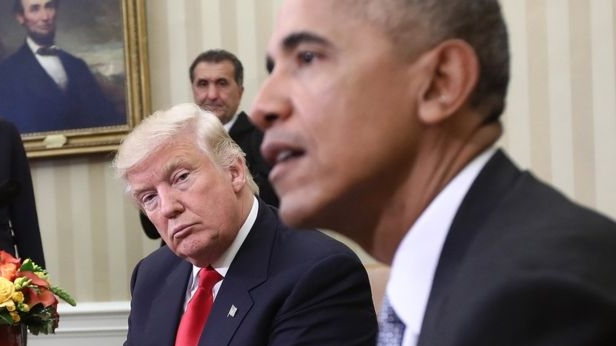
June 1, 2017
By Chris Rochester
MacIver Institute Communications Director
President Trump is widely expected to announce whether or not the United States will withdraw from the Paris Climate Accords at a press event at 2 p.m. today at the White House. Here are five reasons why the President should say no to Paris and remove the U.S. from the ill-advised agreement.
5. The Paris Conference Was All Hype
Climate alarmists gathered at the Paris COP-21 conference for another round of doom-and-gloom claims about the cataclysmic threat of climate change. Even noted environmental scientist Pope Francis joined the chorus, ominously warning mankind that “we are on the brink of a suicide.”
According to the COP-21 website, more than 10,000 different entities, including almost 2,300 cities and 2,000 companies have supposedly agreed to take measures to lower their emissions. It appears, however, these numbers were pulled out of thin air. The city of Janesville is listed on the website as having agreed to a 75 percent CO2 reduction by 2050. When asked who agreed to this goal, Janesville said it never approved a carbon reduction agreement.
Who cares about a little thing called truth when you are saving the planet from extinction, right?
4. The Agreement Tried Transferring $100 Billion in Climate Extortion Money
Many at the conference wanted contractual language that would have forced the U.S. and other developed nations to pay $100 billion or so a year in extortion money – some called it climate reparations – to the least developed nations of the world. The money was intended to essentially bribe developing countries to stop building new coal power plants and return to the stone age.
In reality, a $100 billion transfer of wealth would do nothing to stop the rapid development of the world’s formerly poorest nations, but it would’ve soaked hardworking taxpayers throughout the country with no tangible benefit.
3. Obama Bypassed Congress Altogether
Obama had a very real problem in Paris. Any language that would have been considered legally binding on the United States would mean that the agreement was a formal treaty. In that case, it would require a two-thirds vote of approval from the U.S. Senate. Given the fact that the president could not muster enough support for a similar carbon dioxide restriction proposal back in 2010 when his own party controlled both chambers of Congress by wide margins, Senate approval was impossible.
Instead, Obama opted for a voluntary agreement. That means the world’s biggest polluters – China and India, in particular – are on an honors system to impose their own draconian rules that would kill their nations’ growing economies. We aren’t holding our breath.
2. Economic Ruin by Bureaucratic Dictate
Without the consent of the U.S. Senate, President Obama was left with just one option to advance his radical, job-killing climate change agenda – bypass Congress altogether and foist his “Costly Power Plan” agenda via bureaucratic dictate.
Obama turned to the faceless and unelected bureaucrats at the Environmental Protection Agency to impose rules that would cost our economy dearly. In Wisconsin alone, the plan would cost nearly 21,000 jobs and result in a $1.82 billion drop in our disposable income over the next 15 years, according to a 2015 study by the MacIver Institute and Beacon Hill Institute at Suffolk University.
1. All For What?
Obama’s Costly Power Plan would have a negligible effect on global temperatures, especially because America is responsible for just 5 percent of global carbon emissions. Even if the United States completely stopped emitting carbon dioxide immediately, global temperatures would only drop 0.15 degrees Celsius, according to the Cato Institute.
Using the EPA’s own estimates, the Clean Power Plan rules would lower temperatures by less than two-hundredths of a degree Celsius by the end of the century.
What a difference a year can make. We now have a president who is poised to remove the United States from the Paris agreement and who promises to revive the engine of American economic growth.
Withdrawing the U.S. from the Paris Accords would be a good start to fulfilling that promise.